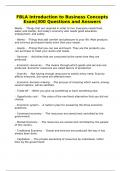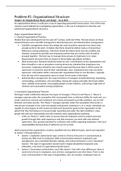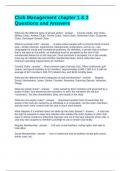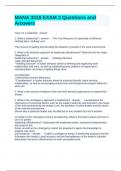LES 1, introduction – 3 October ........................................................................................................... 3
Why this class is given ..................................................................................................................... 3
What is the class of history of international relations about .......................................................... 5
How will history of international relations being thought .............................................................. 7
LES 2, China and east Asia – 10 October ........................................................................................... 12
Introduction: What is China? ......................................................................................................... 12
The ‘warring states period’ ............................................................................................................ 14
The development of the Chinese state ......................................................................................... 17
The overland system...................................................................................................................... 21
The tribute system ......................................................................................................................... 22
LES 3, India and Indianization – 17 October ...................................................................................... 24
Actua intro ..................................................................................................................................... 24
Introduction: what is India?........................................................................................................... 24
Vedic India ..................................................................................................................................... 26
Classical India................................................................................................................................. 29
Indianization .................................................................................................................................. 32
The Mughal Empire ....................................................................................................................... 34
India as an international system .................................................................................................... 35
LES 4, The Muslim Caliphates – 24 October ...................................................................................... 38
Introduction ................................................................................................................................... 38
The Arab expansion ....................................................................................................................... 40
The Umayyads and the Abbasids................................................................................................... 44
The Arabs in Spain ......................................................................................................................... 46
An international system of caliphates ........................................................................................... 49
The Ottoman Empire ..................................................................................................................... 51
LES 5, The Mongol Khanates – 31 October........................................................................................ 53
Introduction ................................................................................................................................... 53
From Temujin to Genghis Khan ..................................................................................................... 54
A nomadic state ............................................................................................................................. 55
How conquer the world................................................................................................................. 58
Diving it all up ................................................................................................................................ 61
An international system of khanates ............................................................................................. 64
LES 6, Africa – 7 November ............................................................................................................... 66
Introduction ................................................................................................................................... 66
1
, The Nile River Valley ...................................................................................................................... 68
[North Africa]................................................................................................................................. 70
The kingdoms of West Africa ......................................................................................................... 71
East Africa and the Indian Ocean .................................................................................................. 74
An African international system? .................................................................................................. 75
LES 7, European Expansion – 14 November ...................................................................................... 77
Introduction ................................................................................................................................... 77
A sea route to India ....................................................................................................................... 81
Europeans in the “New World” ..................................................................................................... 83
A commercial world economy ....................................................................................................... 87
An industrial world economy ........................................................................................................ 90
The apotheosis of colonialism ....................................................................................................... 94
[Decolonization] ............................................................................................................................ 96
LES 8, Belgian Colonialism – 21 November ....................................................................................... 97
Introduction ................................................................................................................................... 97
The Congo Free State (1884-1908) ................................................................................................ 98
Belgian Congo (1908-1960) ......................................................................................................... 105
Ruanda-Urundi (1916-1962)........................................................................................................ 108
Conclusion ................................................................................................................................... 109
LES 9, Global governance in the nineteenth century – 28 November............................................. 111
‘prehistory’ .................................................................................................................................. 111
19th century ................................................................................................................................ 116
LES 10, The league of nations and its failure – 5 December............................................................ 124
Introduction ................................................................................................................................. 124
The League of Nations: origins .................................................................................................... 126
The League of Nations: organizational form ............................................................................... 130
The ‘failure’ of the League of Nations ......................................................................................... 131
LES 11, The UN and decolonialize – 12 December .......................................................................... 136
Introduction: the Second World War .......................................................................................... 136
The establishment of the United Nations ................................................................................... 139
Human Rights in the U.N. charter................................................................................................ 144
Decolonization and the Bandung Conference ............................................................................. 146
2
, LES 1, introduction – 3 October
Why this class is given
• Why it is useful for social scientists to study history?
o Antwoord les
▪ To understand what happens now and could eventually influence the future
▪ To learn from the past and see what went wrong in the past
▪ See evolution and in this way, you can make historical observations, compare
situations
▪ To create/research general theories
o Antwoord prof, 3 arguments:
▪ Historical legacies (e.g. post-communist societies).
• If you research particular societies you will see that some societies
appear to be marked by their history. Their identities/practices/way of
handling problems is marked by the past they have been through. If
things have been institutionalized for a very long time it will be
extremely difficult to get rid of these (political) traditions. → this claim
is expressed in words such as ‘post-colonialism, post-communism,
etc.’.
o E.g. people still refer to them as post-communist societies
(Ukraine, Poland, Bulgaria…) → communism still has an
influence on how these countries work (not only chronological
Important
argument: they were communist, but no longer, so they are
difference
between legacy
‘post-communist states’)
and memory: BUT also in terms of institutions and attitudes: certain
attitudes have been inherited from the era of communism
Legacy = the
impact of history is
➢ The substantive argument: states act as such for a
structural. reason. For example there is distrust in the
Individual agents government, but this is because these are ‘post-
can’t do much communist states’.
about it, ‘you are
o E.g. post-colonial societies: a lot of these societies are still
burdened’
influenced by the colonial phase in terms of institutions and
Memory = it is attitudes
deliberate choice
➢ structure of colonial relations between colonized and
by political actors
as a political colonizer from the past lingers in the present (feelings
act/strategy. of superiority/ inferiority continue to be reproduced =
substantive sense of postcolonial not only
chronological)
▪ The politics of historical memories
• e.g. Kiev and Russian foreign policy claims: war is still going on in east
Ukraine because Russia argues Kiev used to be the capital of Russia
and therefor Russia is entitled to power in Ukraine
o Not direct causal connection like legacies (1), it needs an effort
to be remembered (made politically relevant)
o countries feel a need to legitimate their use of force, when
trying to legitimate they will often invoke history
3
, political actors struggle today, but they therefore refer to the past and
deploy the past.
• Historical memories BECOMES/ARE political memories (dit komt niet
uit het niets er zit altijd een doel achter, maar daarom is politiek niet
per definitie een ‘vies’ woord)
o Propagated by ‘memory activists’ (deze term wordt verduidelijkt in
de literatuur van les 1)
➢ Ze komen niet uit het niets en ontwikkelen niet spontaan
➢ They typically have a political stake/interest, but that does not
need to be ‘nation building’. Nationalist does this very often, but
we should not reduce memory activism to the work of
nationalists.
➢ E.g. What about Israel keeping the holocaust 'alive' to justify the
state of Israel? → Israel is very clearly a memory activist at the
international level concerning the holocaust
It is not wrong of Israel to be a memory activist, it is normal that
there is competition between memory activists
o Based on ‘selection and exclusion’
➢ Political memories are ways to remember the past that are shared
by members of a political society (nation, city): however pol
societies will never remember all of their memories, they will
always exclude certain memories eg wars that you initiated but
lost (US-Vietnam)
➢ There are patterns to this selection: heroic moments will be
remembered, shameful moments not . This requires work:
memory activist work to present a certain picture of history
➢ (e.g. hoe Rusland nu zijn geschiedenisboeken voor kinderen zal
herschrijven door zaken te verwijderen of te benadrukken →
https://www.standaard.be/cnt/dmf20231002_96548246)
o Depends on the ‘efficiency of political pedagogy’
➢ You need access to institutional resources = You will have to
institutionalise your understanding of the past. As long as
alternative view is not included in textbooks at schools,
universities, there is very little change the memory activists will
succeed
➢ E.g. Decolonial activist try to change our memory by suggesting to
erase traces from our public sphere (Leopold statues)
o Show a high degree of ‘homogeneity’
➢ (e.g. wat je het meest leest in handboeken, maar er zullen altijd
stemmen zijn die dat tegenspreken. Er kan dan ook gesteld
worden dat de mate waarin een society toelaat om alternatieve
benaderingen te betrekken, des te democratischer de
samenleving is.)
➢ There is always an attempt of institutionalisation.
o Relies on symbols and rites that ‘enhance emotions of
empathy and identification’
➢ When it comes to the influence of the colonial past (history) on
the current affairs (future), the question of the quality of history
is less important. There is always selection and exclusion. It is not
the truth that matters but the persuasiveness of political
memories → This is why ultimately memories activism depends
not only on historical research but also on symbols and rites that
enhance emotions of empathy and identification (Leopard
statues)
4








